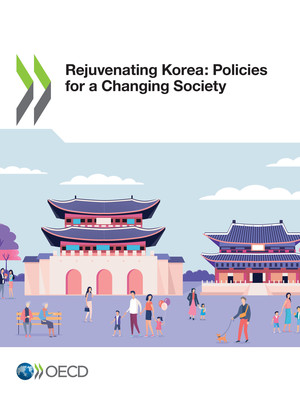copy the linklink copied!Foreword
Families are changing rapidly in OECD countries. Only a few decades ago, most families in most OECD countries followed the traditional married-couple male-breadwinner model. Many couples married in their twenties and settled down to have children soon after. Birth rates were high by today’s standards (if already falling), and separation and divorce were relatively uncommon. Paid work within the family was dominated by the male partner; many women left work on marriage or parenthood, and often did not return to the labour market until after their children had left education, if at all.
Families look very different today. Partnering behaviours have changed substantially, with young people increasingly choosing to postpone marriage and parenthood until they are established in the labour market. Today, on average across the OECD, adults do not marry for the first time until they are into their thirties. More frequent divorces and separations have driven a sharp increase in the diversity of family living arrangements. Many more children are now living in single-parent families, with unmarried cohabiting parents, or in “re-constituted” families. In the labour market, for most couples in most OECD countries, dual earning has become the norm.
The changing nature of families and family life means that family policy must change, too. The OECD has long emphasised the need for governments to modernise their family policy packages; the Babies and Bosses series, released in the early- to mid-2000s, set the tone for almost two decades of research exploring and highlighting international good practice in modern family policy. The common message throughout this work is that family policy can only succeed if it provides co-ordinated, joined-up assistance to all families in all their forms. This means offering families a continuum of support from birth through until adulthood, helping parents meet their work and family goals and protecting all families from poverty and disadvantage, whatever their circumstances.
This report, Rejuvenating Korea, builds on the OECD’s body of data- and policy work on families and children. It takes a close look at families and family policy in Korea, at a time when both are undergoing wholesale change. It reviews the many recent developments in Korean family policy and asks where Korean policy should go next to promote family and child outcomes. It pays particular attention to what Korea can do to boost its low and falling fertility rates.
This report was prepared in the OECD Directorate for Employment, Labour and Social Affairs (ELS), under the supervision of Willem Adema and the senior leadership of Stefano Scarpetta (Director of ELS), Mark Pearson (Deputy Director of ELS) and Monika Queisser (Head of Social Policy).
The report was written by Willem Adema, Chris Clarke, Eunkyung Shin and Olivier Thévenon, with valuable contributions from Shannon Gedo and Jiwan Lee. The report benefited from comments and feedback by Christophe André, Randall Jones, Veerle Miranda, the Korean authorities and Delegates to the OECD Employment, Labour and Social Affairs Committee. Natalie Corry prepared the report for publication. Lucy Hulett, Liv Gudmundson, Linda Moran, Fatima Perez and Alastair Wood provided valuable further logistical, publication and communications support.
The OECD gratefully acknowledges financial support provided by the Republic of Korea for the preparation of this report.
Metadata, Legal and Rights
https://doi.org/10.1787/c5eed747-en
© OECD 2019
The use of this work, whether digital or print, is governed by the Terms and Conditions to be found at http://www.oecd.org/termsandconditions.


